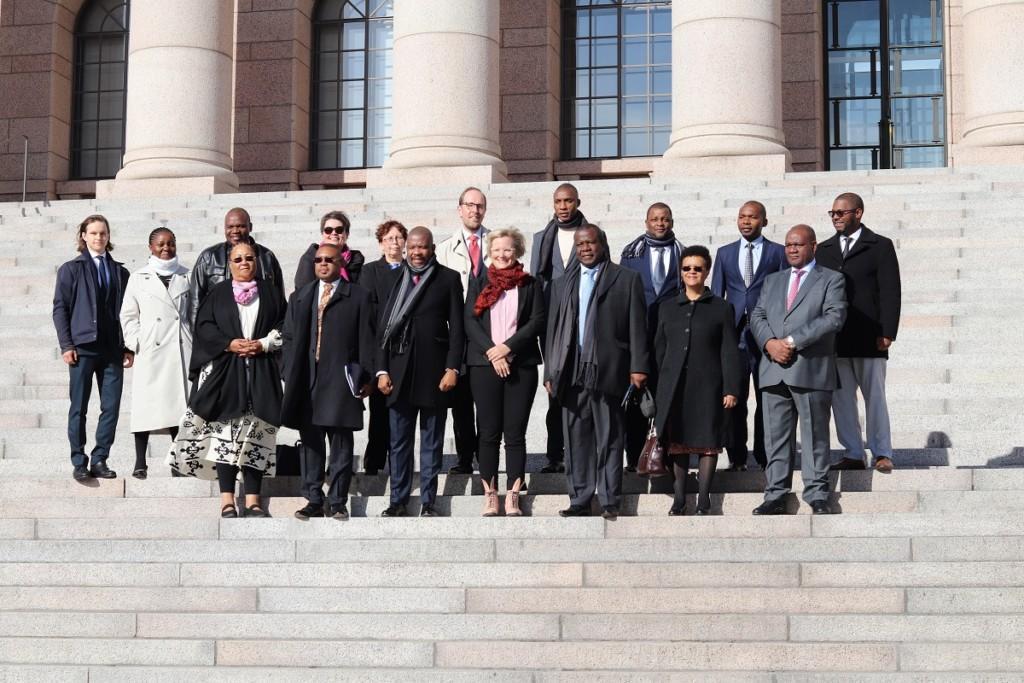
Sustainable use of natural resources requires improved oversight by the parliament
Though Mozambique has seen economic growth in the past decade it still remains to be one of the poorest countries in the world. Vast deposits of natural resources are predicted to give the country a substantial economic boost in the future.
Natural resources are globally one of the most common reasons for conflicts and like other developing, natural resource rich countries, Mozambique is in danger of the resource curse: without monitoring, regulations and transparency natural resources will not lead to equal economic growth or employment. Without oversight, the extractive industry can create environmental problems, and in many places in Mozambique citizens have also been re-located by force to give way to mining.
It is important to put effort into democratic oversight of natural resources in Mozambique now, when many of the deposits especially in Northern Mozambique are about to turn profitable. In some parts of the country, for example in Tete Province, coal mines have been functional for years. Use of the newly found deposits has not even started yet. The role of the Parliament, both at national as well as provincial levels, in democratic oversight is crucial. In late 2020, the Bank of Mozambique presented its own model for setting up and managing a natural resources fund. The establishment of the fund is expected to be debated in the Parliament in the coming years.
Though Mozambique has held regular multi-party elections since 1994, throughout its independence one party, Frelimo, has been in power. There have been recurring tension and conflicts between the ruling party and the opposition. Frelimo won the 2019 elections, gaining a 2/3 majority in the Parliament which gives it the possibility even to change the Constitution. The election results were shadowed by electoral violence and allegations of fraud.
The country’s democratic development is shadowed also by violence in the northern part of the country. The causes of the violence vary from radicalism to exploiting natural resources. In the course of 2020, violent attacks increased which also threatens investments in the area.
Our work in Mozambique
With its partners Instituto para Democracia Multipartidaria (IMD) and Netherlands Institute for Multiparty Democracy (NIMD), Demo Finland set up a project in 2017 supporting the democratic governance of extractive industries and natural resources in Mozambique. The aim of the project is to enhance the oversight role of the Parliament and six Provincial Assemblies on the extractive industries and to increase their capacity to assess the implementation of the existing legislation on natural resource management. According to the evaluation on the first phase of the programme (2017–2019), the programme is very relevant to the sustainable and transparent governance of Mozambique’s natural resources. The evaluation recommended continuation of the programme. The second phase started in the beginning of 2020.
The project has built capacities especially of the Parliamentary Committees for Constitutional Issues, Human Rights and Legislation and for Agriculture, Economy and Environment on the social and economic effects of the natural resource sector as well as on human rights and environmental issues. Members of these Parliamentary Committees have also visited communities affected by extractive industry and interacted with citizens to evaluate effects of the extractive industries. In the second phase, the Budget and Planning Committee of the Parliament will be included in the programme activities. Provincial Parliaments have been trained as well. The trainings are organised together with the training centre of the Mozambican Parliament, the Eduardo Mondlane University, CSOs active in the extractive industries, and relevant ministries.
Another aim of the project is to advance dialogue between decision-makers at national and provincial levels as well as with the academia and civil society. A platform for open and constructive dialogue has been set where national level parliamentarians can share and interact with their provincial level colleagues. Strengthening political dialogue is crucial in the tense political situation that is further heated by the fear of unfair distribution of wealth created by the natural resources.
Based on previous experience in Demo Finland’s programmes, international peer-learning is an important element. Mozambican and Finnish MP’s have visited each other and mining sites in both countries to share good practices and experiences regarding extractives. A delegation of Mozambican parliamentarians visited Finland in May 2022. The programme included visits to the Parliament and a test mine in Tampere, as well as expert lectures on, among other things, the Finnish mining law reform process, taking climate change into account in mining operations, and a presentation of good governance practices.
There has also been co-operation with other parliaments in Southern Africa.
Results of our work
- The project set up a dialogue platform for regional and national parliamentarians to facilitate co-operation in issues related to the extractive industry. The platform has allowed the regional parliamentarians to bring their hands-on knowledge from their regions into national level policy-making.
- The training of the Parliamentary Committees has raised awareness in the Parliament about the effects and dynamics of the extractive industry sector and its oversight role has improved. The project has introduced the rights-based approach for the Committees of the Parliament, and particularly the guidelines to monitor human rights in the extractive industry and in law-making.
- The parliament, through its standing committees, is holding more hearings on extractive industry issues with the government, which are carried out with more technical knowledge than before.
- Awareness about environmental rights has improved, as well as the Parliament’s intervention in this area. The work resulted in very concrete results, when MP’s received complaints from the local community about environmental problems in the mining sites. The Parliament´s intervention has resulted in the Government to take action in temporary closure of two mining sites.
- On the regional level the parliaments are active in organising hearings with relevant stakeholders, which has improved the capacity to monitor how laws are implemented.
